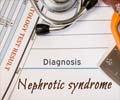A study has found homelessness to be a cause of premature death and kidney failure among patients with moderate to advanced chronic kidney disease (CKD). The study also adds that the use of emergency services is more common among them than impoverished peers with stable housing.
The findings indicate that greater efforts are needed to address the unmet needs of homeless patients with CKD and other chronic conditions to improve their health and reduce public costs.
Approximately 3.5 million people are homeless each year in the United States. Like many disadvantaged and vulnerable groups, homeless people experience numerous barriers to obtaining appropriate and effective medical care.
Advertisement
While homeless people''s elusive nature can make it difficult to get an accurate look at their health, Yoshio Hall, MD (University of Washington, Seattle) and his colleagues now provide a rare glimpse. The researchers analyzed the medical records of 15,343 adults with moderate to advanced CKD who received outpatient care from 1996 to 2005 from the Community Health Network, a large safety net healthcare provider run by the City and County of San Francisco; 858 of these (6%) were homeless.
Compared with poor adult patients with stable housing:
- Homeless adult patients were younger, disproportionately male and uninsured, and they suffered from much higher rates of depression and substance abuse.
- Over an average follow-up of more than two-and-a-half years, homeless adult patients had an 82% increased risk of developing kidney failure or dying. After demographic factors, substance abuse, and other medical conditions were taken into account, they had a 28% increased risk of developing kidney failure or dying.
- Also during follow-up, half of homeless adult patients visited the emergency department more than nine times and experienced more than five hospitalizations. Most housed patients experienced one or no emergency department visits or hospitalizations.
Advertisement
"Sadly, for most homeless persons, securing adequate shelter, food, and clothing often competes with regular healthcare and results in more frequent use of costly acute care services to manage chronic conditions," said Dr. Hall. "Use of these acute care services might actually decline among the homeless when services such as transportation, social work, nutrition, and healthcare provider access become available following dialysis initiation." Additional research is needed to see if such support services actually help homeless people receive appropriate and effective medical care, improve their health, and ultimately reduce public costs.
Source-Newswise















